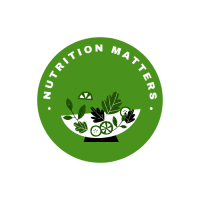This is a big issue
How big? ‘More than half of the food produced and sold in Canada becomes waste’ kind of big.
Stats are unsettling: the average household throws away approximately $1,800 per year via food bought and never consumed, to a total of $49 billion country-wide. Or more than 183kg of wasted food per person per year.
Across Canada, that’s 35.5 million tonnes of wasted food. It takes energy to grow, transport and store food, so past the issue of food waste, there is also energy waste, most of which comes from non-renewable sources.
Nauseating, right?
There are solutions though: buying less and buying fresh, rather than processed, wherever possible, to avoid excessive packaging and an increased consumption of chemicals. Another is composting, at home or through a local compost company, which we have a few in Kamloops (see below).
Food for thought (pun and all): what could you do with 183kg of free food if I were to give it to you?
The circular economy mentality
I grew up with a ‘waste not/reuse/repurpose’ family and community mentality. It was not because of blogs or minimalist gurus, just life unfolding in a sustainable way because that’s what people did before consumerism became the multi-headed beast it is nowadays. The circular approach to life made sense then and it makes sense now too if we stop to consider.
The big picture
Marketing tricks and gimmicks influence us to buy more than we need, and, in many cases, quality has gone down the drain too. That includes food. Excess food does not mean better fed people and/or fewer hungry people. On the contrary: we can be fed and malnourished, and yes, there are too many hungry people in the community and beyond, and that includes children.
Supporting the local economy through buying from small local businesses, including at the spring-to-fall farmer’s markets, also help keep the local food bank and soup kitchens well stocked and able to provide to the most vulnerable in our community.
It’s a good way build our personal and community karma, don’t you think?
3 Things you could do today to reduce food waste:
- Buy only what you need for one week. Wait, what if I run out of groceries during the week? Yes, that can happen while you have your training wheels on (e.g. figuring out the quantities for one week). But why not make it a game while you are at it? How? Be creative and invent some meals with the things you have in your pantry. Stock that magical place regularly with lentils, beans, canned or sun-dried tomatoes, whole grains and seeds, and some dry mushrooms.
- Buy local and ideally organic when possible so you don’t have to peel your produce and make veggie broth out of your veggie scraps.
- Compost. You can do worm composting if your space is limited (more on this later) or you can employ one of the local composting services, or a municipal one if available.
If you are based in Kamloops, here are some good resources to start with:
